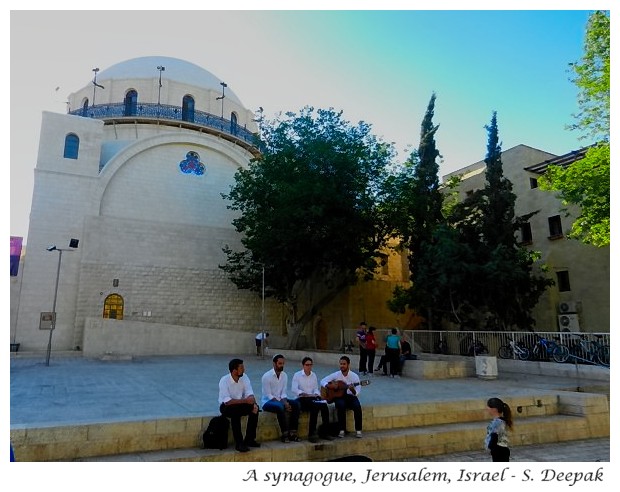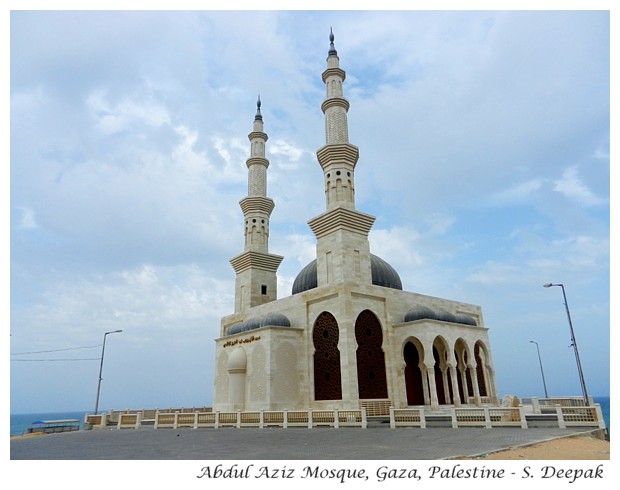While humanity needs a spiritual dimension, the practical ways in which this need is expressed through religions depends upon the social, cultural, economic and technological context of the societies. Thus, it is inevitable that in the new millennium, along with our changing societies, our religions will also change.
This post is a speculation about what humanity needs from religions in the 21st century.
Today, while we have some large radical and orthodox religious groups, many more persons identify themselves as "Atheists" or non-believers. A large number of persons, who formally belonged to a religion, define themselves as "spiritual and not religious". Many others, while belonging to one religious tradition, pick and adopt specific ideas of other religions.
This post is a speculation about what humanity needs from religions in the 21st century.
Religious Harmony
Like the different human species, the religious beliefs are also in continuous evolution. In the recent history, our different religions, especially the more orthodox religious ideas, have been one of the root causes of conflicts. In the medieval period, there were some attempts to come up with universal religions, which proposed unification of the different religious ideas. Baha'i religion in Persia and Deen-e-Ilahi by the Mughal king Akbar in India were examples of these unifying religions, but they had a limited impact because they were adopted by few persons, though Baha'i religion continues to thrive even today in a few countries.Today, while we have some large radical and orthodox religious groups, many more persons identify themselves as "Atheists" or non-believers. A large number of persons, who formally belonged to a religion, define themselves as "spiritual and not religious". Many others, while belonging to one religious tradition, pick and adopt specific ideas of other religions.
Science and Spirituality
I grew up in a family in India which was sceptical about our religion (Hinduism) and about the claims of different Gurus. Many persons in our extended family and among our friends share this view of Hinduism. However, I have met many persons who do not share this sceptical view of religion, they have no doubts about their faith. I recognise that faith does not need any scientific proof but personally for me, finding some kind of scientific rationale for the spirituality is important.There are 2 kinds of technological developments, knowledge and understandings, which influence my spiritual beliefs:
(1) The first is our knowledge about the place of humanity in the Cosmos: We live on a tiny planet surrounded by billions of stars of our galaxy, and there are millions of other galaxies, each with billions of stars. The Cosmos is so big that even if we could travel at the speed of the light, hundreds of our life-times will not be enough to see even a tiny proportion of those worlds. This vastness of the universe is almost impossible to comprehend for me.
Even if among the billions of stars in each galaxy there can be only one planet which has life, there must be millions of planets with some life in the Cosmos. To believe that there is a human-like deity or an elderly father-like God looking after this unimaginably enormous universe made of trillions of stars and planets in millions of galaxies, who is observing each of us human beings living on our tiny planet and is keeping an account of the good or the bad things we do in our tiny lives, seems implausible to me. I can't imagine a God who has to look after millions of galaxies, worrying about things like if the people are going to the churches or mosques or temples to pray to him regularly or if women on earth are modest and covering their heads and bodies - these seem like ideas of men to control the others.
This understanding of the vastness of the universe leads me to believe that there is no personal God and instead the spirituality is something different. I think that prophets and all our ideas about the different Gods and Goddesses are metaphorical representations of the divine. Their stories and their teachings cannot be taken literally or in absolute terms, they need to be seen in their historical contexts, as answers to the human need for understanding the mysteries of birth, consciousness and death.
(2) The second development is our increasing understanding of the micro-cosmos through quantum physics: we still do not have a proper understanding of the quantum world which focuses on the laws governing the microscopic Cosmos hidden inside each particle of the universe. In that Cosmos also there are billions of sub-atomic particles circling other particles in an infinite number of galaxies of atoms and molecules. In this quantum world, the laws of the ordinary physics do not work, so that the sub-atomic particles can be at more than one place at the same time and the act of observation changes the nature of the observed sub-atomic particles.
To be honest, I don't understand most of it. At the same time, whatever I do understand, reminds of some of the concepts and discussions in the Hindu Upanishads about the nature of reality, probably because I am more familiar with those concepts and ideas. This world of quantum physics leads me to an understanding of God as the universal energy or a universal consciousness that underlies our atoms and molecules of all organic and inorganic worlds.
I like this idea of the divine as the universal energy with different levels of consciousness that moves the sub-atomic particles, atoms and molecules of billions of stars spread out over millions of galaxies. It unites all our universe and at the same time, leaves us free to use our intelligence to live our lives filled with a significance and meanings that we want to give to it. In this sense, I believe that God is the universal energy inside each of us and in everything surrounding us.
Religions for the 21st Century
In this world of increasing scientific understanding and technological progress, our religious beliefs face the challenges of reconciling science and technology with the ideas of spirituality. Different people deal with this challenge differently. While many individuals born in families with strong religious beliefs might share those beliefs, but many of those will question those beliefs as they grow up and as they find those beliefs limiting their life-choices. Many of us would form our own beliefs about the sacred.The social media innovations allow us to find groups of people who share our niche beliefs and we can become part of their communities. Thus I think that the fragmentation of religious beliefs will increase exponentially over the next decades and the trend of picking and adopting aspects of different religions which resonate with us would become stronger with time.
This does not mean that persons believing in traditional religions are going to disappear. There is a subgroup of population, which finds a sense of security in specific and even rigid religious norms, and I don't think that subgroup is going to disappear anytime soon - probably with greater religious choices, these orthodox subgroups will also become stronger.
Among the leaders of traditional religions, those persons who can break-off from religious orthodoxy and can speak to the whole humanity, such as Pope Francis and Dalai Lama, will probably find even greater prominence in future.
The technical progress is increasing our sense of individual rights. Therefore, I think that the ideas of human rights are going to play an important role in our acceptance of religions in the 21st century. I think that issues such as equality of genders, rights of persons to choose their sexual orientations, the right to join or leave a religion, the right to live together with the person of our choice with or without marriage, the right to have a family of our choice and the right to die with dignity are all going to be basic starting points for the acceptance of religions of future.
Among the leaders of traditional religions, those persons who can break-off from religious orthodoxy and can speak to the whole humanity, such as Pope Francis and Dalai Lama, will probably find even greater prominence in future.
The technical progress is increasing our sense of individual rights. Therefore, I think that the ideas of human rights are going to play an important role in our acceptance of religions in the 21st century. I think that issues such as equality of genders, rights of persons to choose their sexual orientations, the right to join or leave a religion, the right to live together with the person of our choice with or without marriage, the right to have a family of our choice and the right to die with dignity are all going to be basic starting points for the acceptance of religions of future.
Conclusions
These are my speculations about the future of religions in the world. I am sure that my views are influenced by my biases - those of growing up in a family sceptical about religions, those of being a part of a multi-religious family, those of reading Upanishads and those of my work-experience in the field of human rights.However, I am aware that history does not move in straight lines. It goes up and down, sometimes it takes two steps back before moving ahead. Looking at the conditions of specific religions might make us feel that instead of the changes I have speculated above, some religions are going in the inverse direction - towards rigidity, greater orthodoxy and a substantial denial of human rights. However, I believe that overall direction of history is different and sooner or later, all religions will join that direction, where the rights of individuals will be stronger than the rights of collective religious groups.
***









